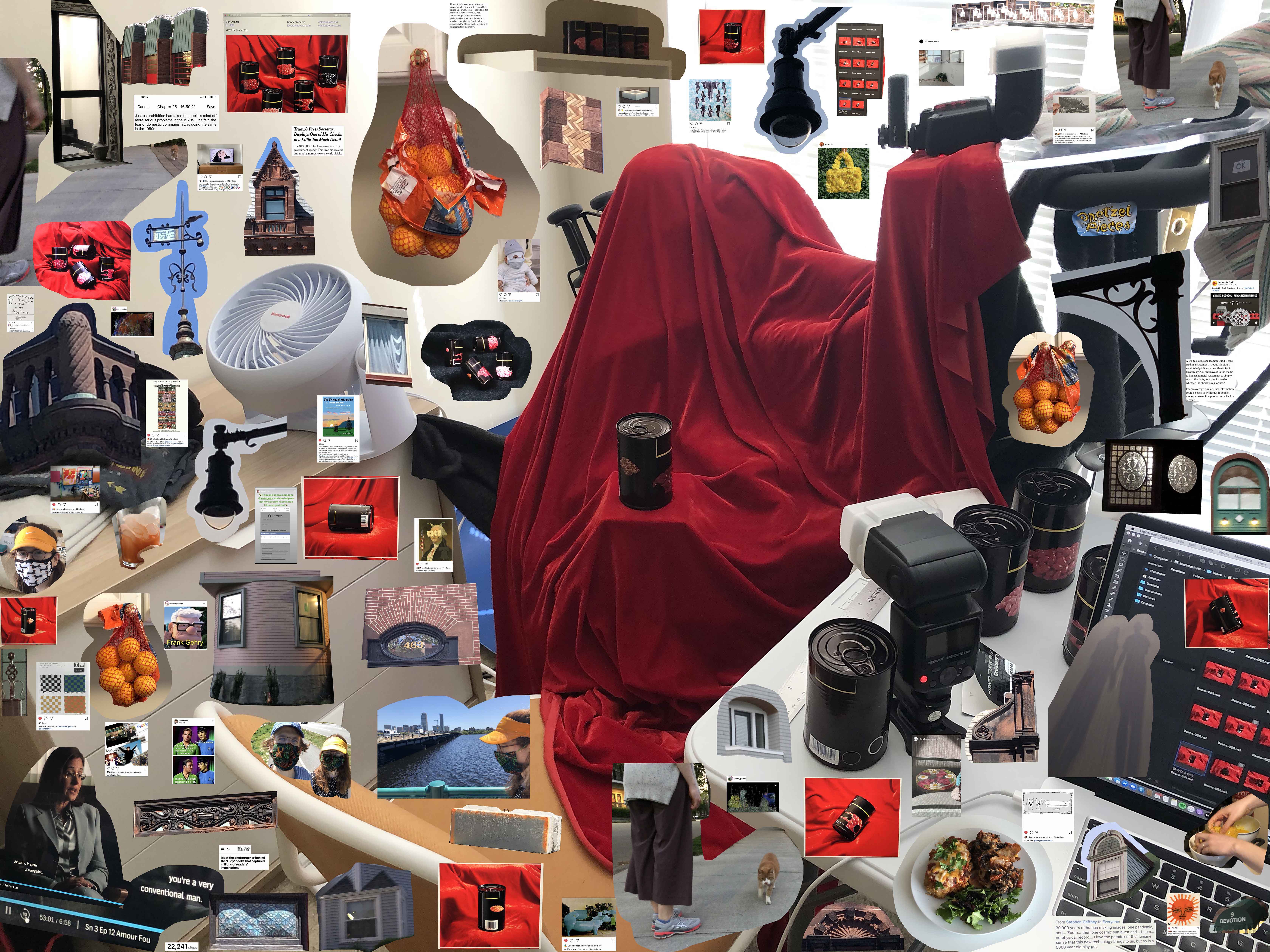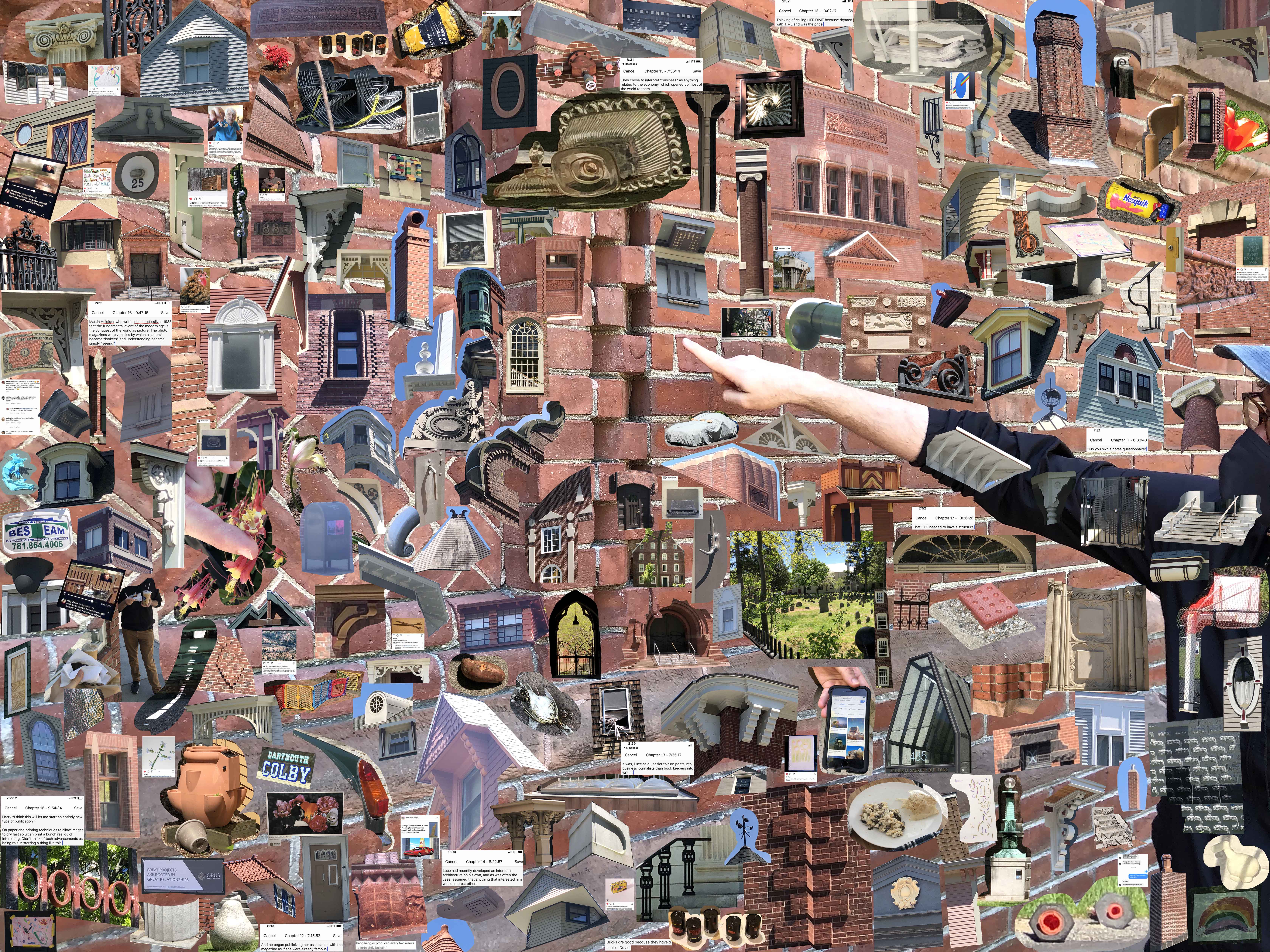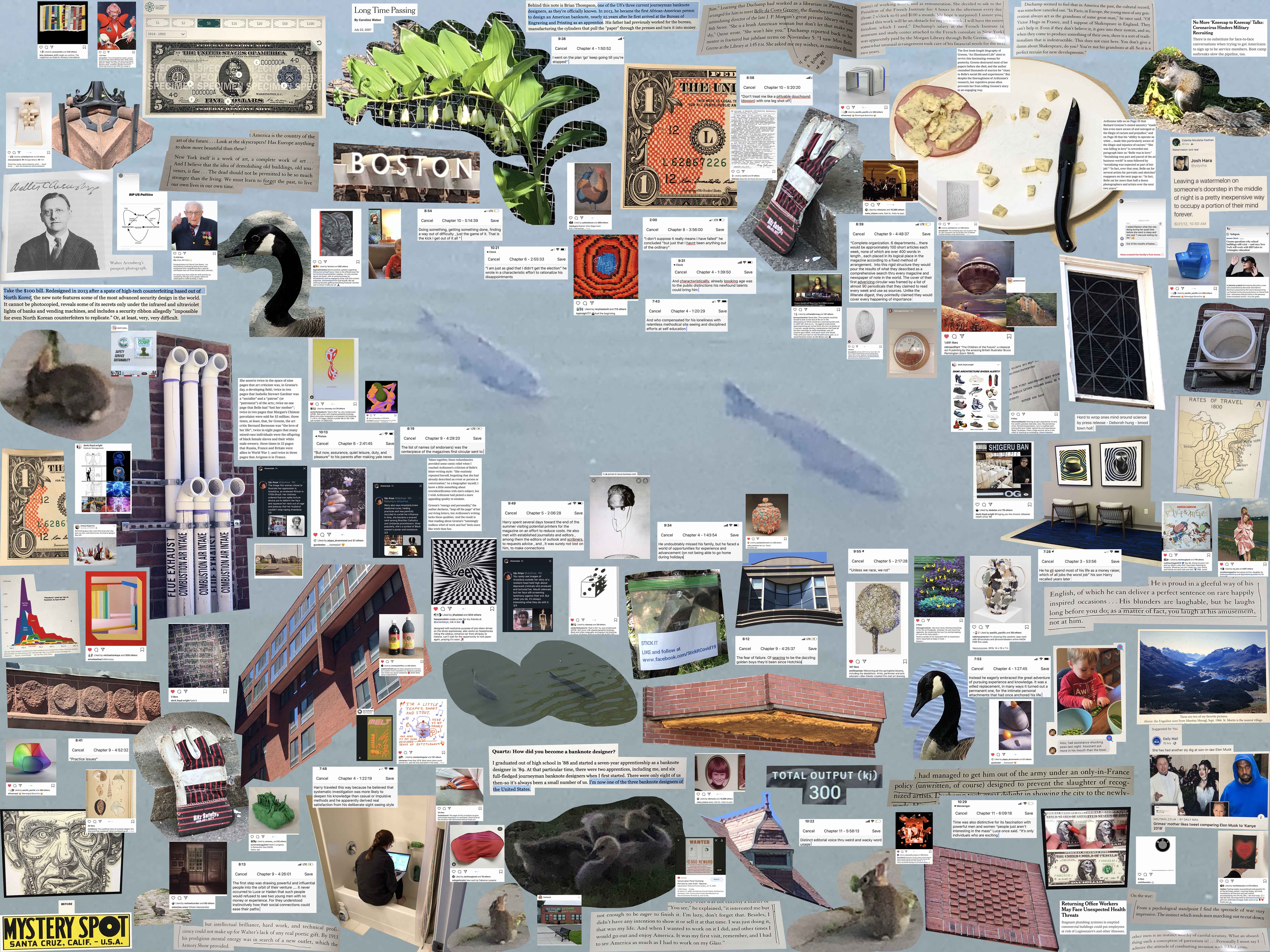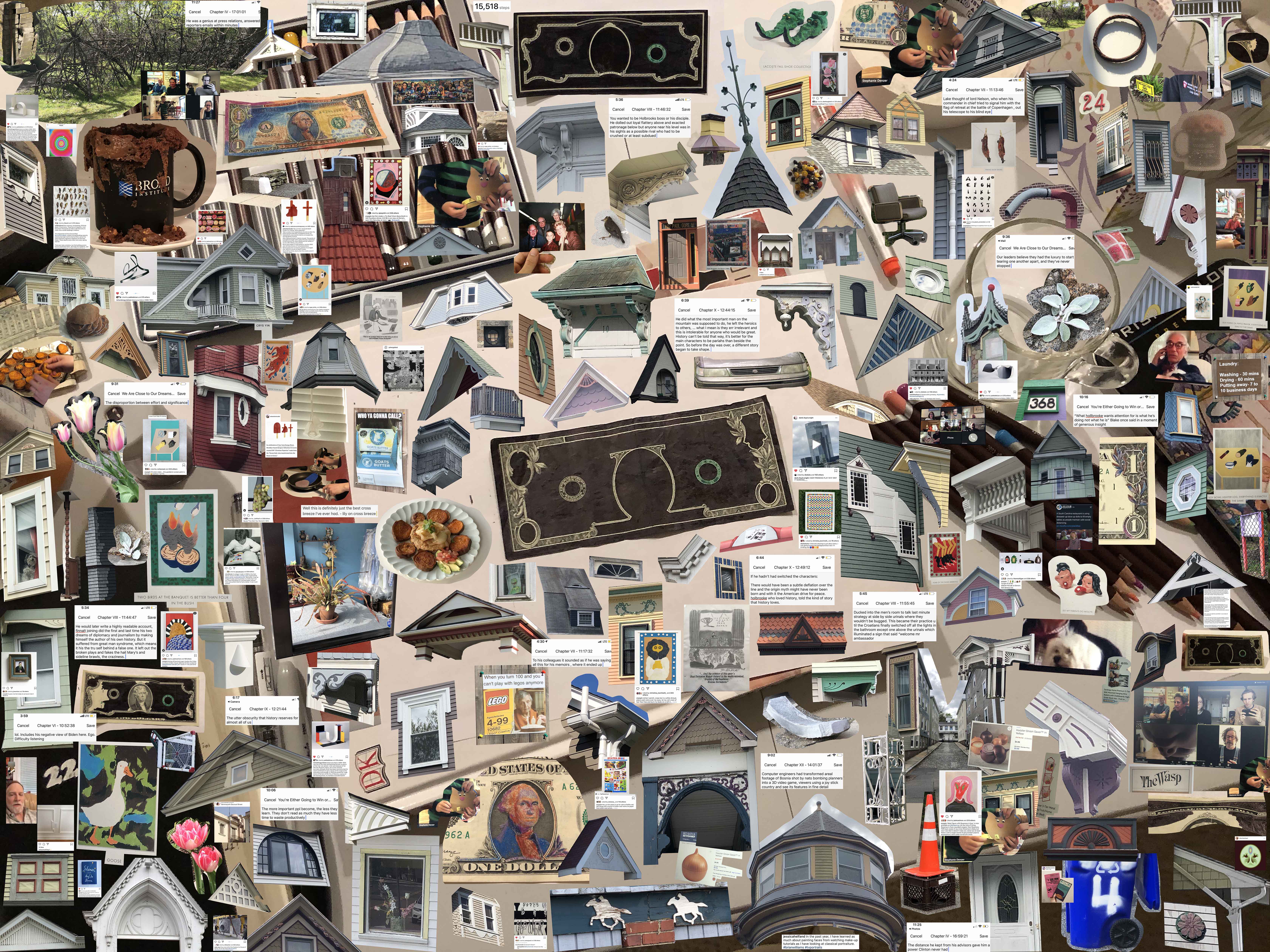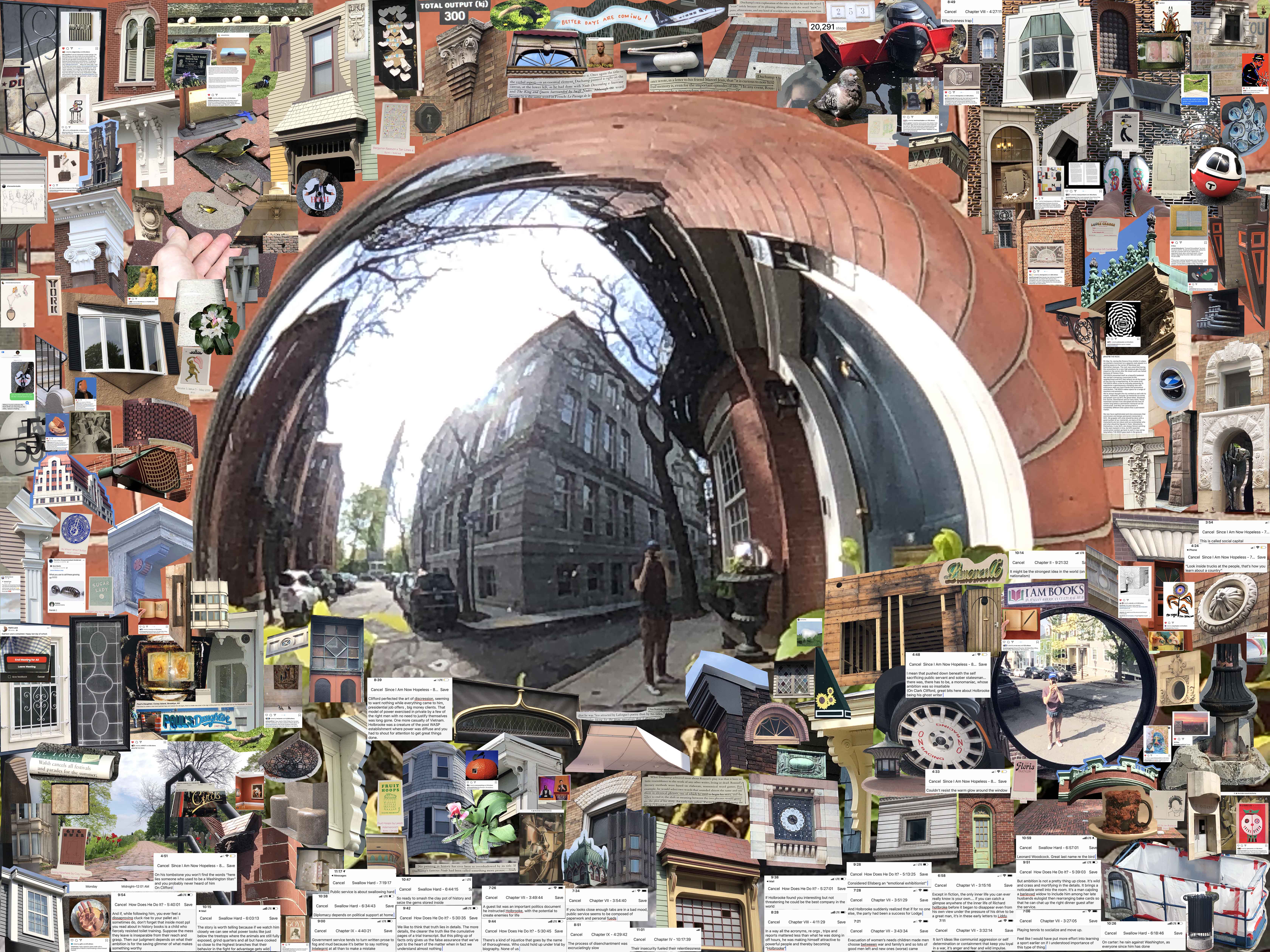Tuesday, June 2, 2020
"There is no such thing as a normal period of history," Robinson said. "Normality is a fiction of economic textbooks."
— Zachary D. Carter, The Price of Peace: Money, Democracy, and the Life of John Maynard Keynes
Monday, June 1, 2020
Can mine be a birdhouse?
— Lily on her gravestone
Sunday, May 31, 2020
Then came the seemingly eternal round of lobbying public officials, filing forms, waiting for environmental impact studies, speaking at hearings, rallying support. All of this, Christo insisted, was part of the art work.
— William Grimes, "Christo, Artist Who Wrapped and Festooned on an Epic Scale, Dies at 84," The New York Times
Saturday, May 30, 2020
But Keynes recognized that money was not only a mechanism for transmitting information about the relative values of different goods; it was also a store of value, which enabled people to make and express judgments about their own material security through time... "The importance of money essentially flows from its being a link between the present and the future."
— Zachary D. Carter, The Price of Peace: Money, Democracy, and the Life of John Maynard Keynes
Friday, May 29, 2020
The book is difficult and obscure becasue he wanted it to be. And its sheer ugliness created a small industry of interpreters, some of whom enjoyed distinguished careers and won Nobel Prizes just by simplifying or interpreting sections of the book.
— Zachary D. Carter, The Price of Peace: Money, Democracy, and the Life of John Maynard Keynes
Thursday, May 28, 2020
"We were just in a position to afford Shakespeare at the moment when he presented himself!" Keynes wrote.
— Zachary D. Carter, The Price of Peace: Money, Democracy, and the Life of John Maynard Keynes
Wednesday, May 27, 2020
This... ...Is Why.
— Caption on image juxtoposition of officer Derek Chauvin kneeling on George Floyd's neck and Colin Kaepernick kneeling on a football field
Tuesday, May 26, 2020
It was not the power of Keynes' argument that propelled the book to such wild success. It was the vicious, detailed personal portraits of the Great Men he lambasted.
— Zachary D. Carter, The Price of Peace: Money, Democracy, and the Life of John Maynard Keynes
Monday, May 25, 2020
The point is, although artists comprise the majority of people subjected to Jessica's PR stunts, we aren't the intended audience for them.
— Brad Troemel, "THE HUSTLE REPORT"
Sunday, May 24, 2020
What a little creep.
— Lily on Dumbledore holding Voldemort in a ball of water
Saturday, May 23, 2020
A convertible painted with dots to match the owners' Dalmation.
— Alan Brinkley, The Publisher: Henry Luce and His American Century
Friday, May 22, 2020
Actually, in spite of everything, you're a very conventional man.
— Jennifer Melfi, "Amour Fou," The Sopranos
Thursday, May 21, 2020
Bricks are good because they have a scale.
— David
Wednesday, May 20, 2020
"People just aren't interesting in the mass," Luce once said. "It's only individuals who are exciting."
— Alan Brinkley, The Publisher: Henry Luce and His American Century
Tuesday, May 19, 2020
According to this argument, Duchamp realized that he could never hope to compete on equal terms with his older brothers, much less with Picasso and Braque, and so he coolly and cynically set out to change the rules of the game.
— Calvin Tomkins, Duchamp
Monday, May 18, 2020
When you've proved it can do everything, it reduces your interest when people produce a particular configuration.
— John Conway via Siobhan Roberts, Genius At Play: The Curious Mind of John Horton Conway
Sunday, May 17, 2020
What's facinating about the rule governing the game, for Conway as the inventor, anyway, is that it's totally stupid. Yet it exists. "I'll tell you what interests me abou this—it's really what interests me about mathematics. Nobody else in the whole history of the world has been stupid enough to invent this rule. That's the first thing. But then, if they had, they would find exactly the behavior that I'm finding... This rule hadn't physically existed in any sense in the world before a month ago, before I invented it, but it sort of intellectually existed forever."
— Siobhan Roberts, Genius At Play: The Curious Mind of John Horton Conway
Saturday, May 16, 2020
The utter obscurity that history reserves for almost all of us.
— George Packer, Our Man: Richard Holbrooke and the End of the American Century
Friday, May 15, 2020
Clifford perfected the art of discretion, seeming to want nothing while everything came to him—presidential job offers, big-money clients. That model of power exercised in private by a few of the right men with no need to justify themselves was long gone—one more casualty of Vietnam. Holbrooke was a creature of the post-WASP establishment where power was diffuse and you had to shout for attention to get great things done.
— George Packer, Our Man: Richard Holbrooke and the End of the American Century
Thursday, May 14, 2020
As a member of the class of lesser beings who aspire to a good life but not a great one—who find the very notion both daunting and distasteful—I can barely fathom the agony of that "almost." Think about it: the nonestop schedule, the calculation of every dinner table, the brain that burned all day and night—and the knowledge, buried so deep he may have only sensed it as a physical ache, that he had come up short of his own impossible exaltation. I admire him for that readiness to suffer. His life was full of pleasures, but I never envied it.
— George Packer, Our Man: Richard Holbrooke and the End of the American Century











